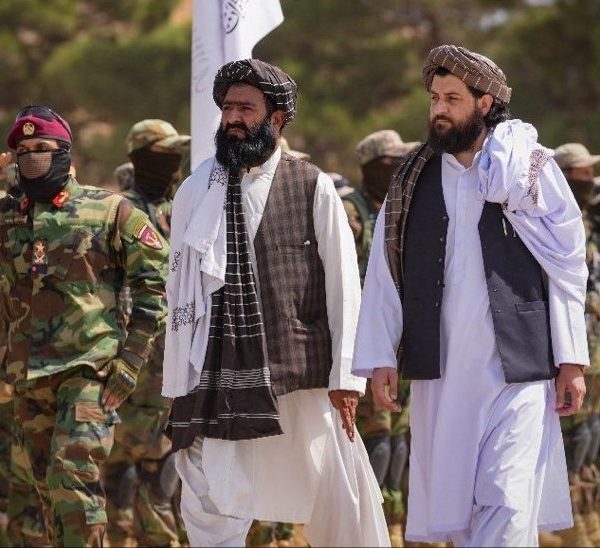
Martin Jay
There's a lot at stake and the flare-up could easily escalate sliding all these players into a regional war against the Taliban.
The Durand Line is the border between Afghanistan and Pakistan drawn up by the British in 1893. This border, until now, hasn't been in the news much, but the recent attack which claimed the lives of both Pakistani and Afghan soldiers at its border will change all that, following Pakistan's bombing of Kabul signalling that it won't tolerate the Afghan Taliban allowing the Pakistan Taliban to operate within its borders.
And so, the border becomes a central theme. Some will argue that the border is an anachronism which needs to be redrawn and will use it to blame the clashes that both these countries are having.
But others will point to Trump and speculate that he had a hand in the border attacks.
Trump certainly would like to destabilize the Taliban in Afghanistan. One of his dreams, aside from a Nobel Peace Prize, is to retake Bagram air base which was simply left to the Taliban, packed full of hundreds of millions of dollars of U.S. military hardware, including Apache helicopters when Joe Biden signalled the pull-out of U.S. forces there when he took office in 2020. Trump also has a score to settle with India who the Pakistanis claim is supporting the Pakistan Taliban and so there is a further pay off if he can help Pakistan kill off India's allies in the region, being a thorn in the side of Modi and his administration. Yet there's even a third reason why he would like to help Pakistan hit its namesake Taliban group, which wants to do in Pakistan exactly what the regular Taliban did in Afghanistan in turning the country back to the dark ages. Trump is about to have a real problem with rare earth minerals as China is now doubling down by blocking all exports, following his 100 percent tariff announcement due to kick in on December 1st. And so Pakistan could help with that, which is why just recently senior military figures from the Pakistan army and officials were welcome to dine with Trump in the White House to discuss a mineral deal, while new arms sales were signed off. The warming of relations is significant given that relations between Pakistan, a so-called ally and the U.S. reached an all-time low when Osama Bin Laden was murdered by U.S. special forces in a house he was hiding in, under the noses of Pakistani security services.
The attacks of Kabul by Pakistan are not unprovoked, it should be noted. Days before, Pakistani Taliban fighters crossed the border into Pakistan not far from Peshawar - an infamous town which is a mecca for extremist groups and was once where Osama Bin Laden and his officers would regularly meet their U.S. handlers during the Afghan-Soviet war in the 80s - and killed 9 Pakistani soldiers in an ambush.
Such attacks threaten the stability of both the country and the incumbent elite in Islamabad and have to be nipped in the bud. Sending a jet bomber to Kabul might have felt like the right response to the Taliban in Kabul who accommodate their Pakistani cousins who are cut form the same cloth. But who took that decision?
Did Trump tell the Pakistanis that they should go ahead with the strike? We can only speculate but the response of the Taliban was almost immediate and predictable. They do not have air superiority over Pakistan and it must annoy them that their own cities are so vulnerable to such air strikes and so they did the only thing they could which was launch an attack on Pakistan soldiers along the infamous border. If this was Trump's thinking, then he would have also factored in that India may well ramp up further relations with the Taliban while the question remains about what role other regional players or neighbours will play if the escalation becomes a regional proxy way. Most of Afghanistan's neighbours are not western vassals so he may well be playing with fire. Even Iran, although it doesn't have good relations with the Taliban, might push aside a recent dispute over water rights along its own border with Afghanistan and support the Taliban with a war with Pakistan. Saudi Arabia would be under pressure to lend support to Pakistan, given that it uses Islamabad as a nuclear weapons proxy anyway with its regional policies and has just signed a deal with Pakistan. The Taliban not only have good relations with India, which was one of the first countries it visited when Kabul fell, but also has equally cordial relations with China and, it should be pointed out, even better relations with Russia.
There's a lot at stake and the flare-up could easily escalate sliding all these players into a regional war against the Taliban, which Trump probably thinks is another bucket list subject which he has to fix to make a point to both Obama and Biden.